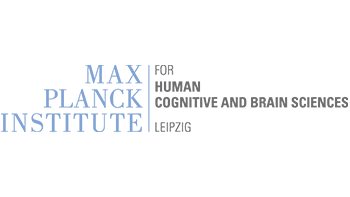July 19, 2023
Rhonda McFleder has been awarded a junior professorship at Universitätsklinikum Würzburg
Rhonda McFleder has been awarded a tenure-track professorship in Translational Medicine at the Julius Maximilians Universität in June 2023. After a successful probationary period, this professorship, funded by the Federal Ministry of Education and Research (BMBF), becomes a tenured professorship. The 33-year-old US-born scientist researches the role of the immune system in Parkinson’s Disease (PD). As member of the ReTune project, she seeks to optimize the neuroprotective effect of deep brain stimulation.
Since 2020, Rhonda McFleder has been working as a Alexander v. Humboldt Postdoctoral Fellow under Prof. Dr. Ip at the Universitätsklinikum Würzburg. Her research is focused on uncovering the cellular components involved in the neurodegeneration that occurs in Parkinson’s Disease (PD) and targeting these components to create disease-altering therapeutics.
The role of immune cells in the development and treatment of Parkinson’s disease
Rhonda McFleder is paying particular attention to immune cells, as these cells play a causal role in PD-associated neurodegeneration and targeting them may be key to halting disease progression. As PD-associated neurodegeneration and pathology is not limited to the brain, she not only studies the immune changes in the brain but in the gut as well, an area also afflicted in PD. “We know that people with inflammatory bowel disease have a higher risk of Parkinson’s, and those who have had an appendectomy, meaning they no longer have an appendix, have a lower risk. But why is that? Why are problems in the gut also present in other neurological diseases such as multiple sclerosis or depression?” asks Rhonda McFleder. On the one hand, she hopes for better and earlier diagnostics. “It would be cool, for example, if one day we could test for Parkinson’s from a stool sample,” she says. On the other hand, she aspires to target the immune cells involved in the brain-gut communication not only as a treatment option for Parkinson’s disease and other neurological diseases.
Optimize neuroprotective effect of deep brain stimulation (DBS)
But it’s not just about new diagnostics and treatment options, Rhonda McFleder also wants to use her research to improve existing treatments. “As part of the SFB’s ReTune project, I have been using my expertise in neurobiology, mRNA sequencing, and immunology to research the mechanisms underlying the neuroprotective effects seen with DBS under the A01 project. By understanding how DBS modulates neurodegeneration, we hope to develop techniques that will retune DBS to maximize its neuroprotective effects and improve patient outcomes”, she explains.
Read more:
Press release of the Universitätsklinikum Würzburg
#WomenInScience Portrait Dr. Rhonda McFleder
About Rhonda McFleder
Prof. Dr. Rhonda McFleder was born in 1990 in Fayetteville, North Carolina, USA. She studied biology at the University of North Carolina and medicine at the University of Massachusetts and received her doctorate in neurobiology. During her practical year in medical school, she interned at various hospitals and research institutions, including the University Hospital of Würzburg. During her internship, she was impressed by the Neurological Clinic and Polyclinic at the UKW with its broad spectrum of clinical topics and the large number of patients presenting with various clinical pictures. What ultimately convinced her to join the UKW team was the clear passion for research held by the clinic director Prof. Dr. Jens Volkmann and Prof. Dr. Chi Wang Ip. The Neurology Clinic, which has made a name for itself as an international reference center for deep brain stimulation for Parkinson’s disease and other movement disorders, seemed like the perfect place for her to combine her medical and scientific background to help patients. She started as a postdoc in Prof. Chi Wang Ip’s research group and was awarded a Humboldt Research Fellowship in November 2020. The junior professorship followed two and a half years later.
© Picture: K. Linkamp, Universitätsklinikum Würzburg











